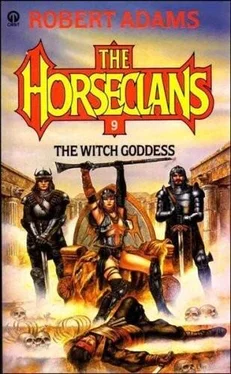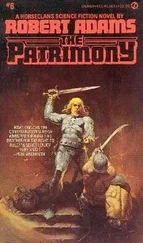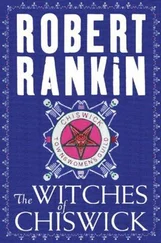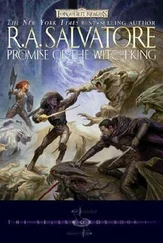The lunatic strictures of the Ganiks’ perverted religion denied them consumption of the flesh of any warm-blooded beast, all of which were supposedly under the personal protection of the god Ndaindjuhd, who did seem to mind the animals’ being killed by Ganiks and others—for such things as hides, furs, horn and sinew—just so long as the flesh was not eaten but, rather, reverently buried with a prayer of apology to the dead beast and to Ndaindjuhd. This restriction applied to wild and domestic beasts alike; the only things a farmer Ganik was allowed to take of his livestock were milk, eggs, wool or hair, dung and labor.
Most disgusting to Erica of the promulgations of Ndaindjuhd was that one decreeing that Ganik hunters should all either copulate with the dead bodies of their quarry or, if that prey was small game, at least ejaculate semen on its carcass before burial, supposedly in order to indicate to the god that they recognized and respected their own kinship to the beasts.
Moreover, she was freely informed, on the Ganik farms bestiality was performed often and openly by both men and women with the various species of livestock for the same holy purposes. That non-Ganik folk not only did not perform these rites but were horrified by and murderous toward those who did had always been one of the principal reasons that the Ganiks had never found themselves able to coexist with non-Ganik populations. Even the bullies, who mostly had strayed quite far from the tenets of the Ganik faith, always expressed anger at the patent intolerance of non-Ganiks for Ganik religious practices and reverence for the land.
The warped and exceedingly peculiar faith of the Ganiks did, however, allow them to eat human beings—which species did not fall under the protection of Ndaindjuhd—all matter of a vegetable nature and any non-warmblooded creature, including fish, amphibians, reptiles, worms and insects. And the protein-starved Ganiks ate every one of the latter category they could catch, and they ate them all —heads, skins, bones, organs, guts and even the contents of those guts.
But they were not allowed fish or frogs or anything else out of the main camp’s lake or feeder streams. At sometime in the past, someone—either Buhbuh or one of his senior bullies—had astutely recognized the fact that the large numbers of lesser Ganiks would quickly exterminate the populations of the waters, were their hungry depredations allowed to go on. So the lake and streams were now and had for long years been the sole bailiwick of the bullies and the leader, lesser Ganiks being permitted to use it only for drinking water and for watering animals.
This practice meant that the trail side bank area was almost always roiled and muddy, so Erica and the bullies did all of their swimming and fishing from the less-troubled other side, which was, in any case, nearer to the cave. So, on a sunshiny morning in August (at least, Erica thought it August; there was no way she could be certain of dates), she, Lee-Roy and Abner, having sun-dried their bodies after swimming, had dressed and were just casting their lines into the water when they heard it.
From afar it came. The distant tock-tock of hard-swung axes biting into wood, with another sound that Erica thought was the sound of one or more saws, these noises interspersed from time to time with the resounding crash of falling trees, the lowings of oxen, creaks of ropes and of harness and occasional sharp reports like the crack of whips.
Looking questioningly at her companions, Erica was somewhat reassured when Abner shrugging, said, “Soun’s is hawd fer to place, Ehrkah—they comes down the hollers awn the wind, raht awftun. Them could be summa them Kuhmbuhluhn bug-tit bastids thirty, forty miles away.”
But when Merle Bowley rode his long-legged horse in from the central area of the shelf-plain some hours later, Erica could tell at once from his expression that something was dreadfully amiss. Nor did he keep her long in the dark, only taking time to dismount, hitch the horse and throw himself flat to dip his sweaty face in the lake before relating his news and his hunches.
“I thanks we ’uz wrowng whin we hurtid them boys to death, naow, Ehrkah, and I had me a hunch we wuz whin we done ‘er, too. Reason is, it be a whole passel of Kuhmbuhluhners is a-hewin’ and a-fellin’ great big ole trees, ‘bout three ridges out f’um the camp, then they’s a-snakin’ them timbuhs closuh to us, towards us, like.
“Naow, a body kin see ’em, see ’em clear, f’um lotsa places awn the edges ovuh the track, but whin ole Horseface he taked a bunch and rode out fer to kill ’em, he couldn’ find the damn fuckuhs, nowhers !
“I tell you, Ehrkah, I watchted him my ownsef; him and his bunch rode almos’ ovuhtop of the bigges’ bunch of them Kuhmbuhluhn bastids, they did, no more’n three, fo’ yard fu’m ’em, lookted like fu’m heanh, but they plumb couldn’ see ’em. So it cain’ be but the one thang—them damn Kuhmbuhluhn Kleesahks is a-workin’ Teenéhdjook magic out thar. Mos’ likely, they wuz a-doin’ the same thing back whin them pore boys we all hurtid to death din’t see nobody neither.”
“But why,” asked, Erica, “would the Kuhmbuhluhners be felling trees so close to us, here? Surely they knew we’d see and hear them.”
Merle’s thick shoulders rose and fell in a shrug. “Lawdsy, Ehrkah, I don’ know why , they jest a-doin’ it. But you can bet the reason they a-doin’ it don’t bode no good fer us Ganiks.”
She asked another question. “Merle, what is this Teeneh… Teenehd… this magic you say the Kleesahks are working?”
The story that she got then was an exceedingly strange one, one that she did not know whether to believe or not. But she listened, making no comments, withholding judgment until she had heard all of it.
As Merle Bowley told it, when first the Ganiks had fled into this area of the mountains from the last place out of which they had been driven, willy-nilly, by intolerant non-Ganiks, there had been no real men resident, only a small number of huge, hairy human-shaped beasts called Teenéhdjooks. Though they varied in size and coloration, according to age, sex and individual differences, most of them were two or more times the height of a full-grown man and proportionately heavy. Nonetheless, they were able to keep their presence in the land unknown to the Ganiks—who were, even then, no mean woodsmen—for many years, up until some type of disease carried off most of their females of breeding age.
Among the Ganiks, in those long-ago days, were a few families of vastly outsized humans, and to one of these the Teenéhdjooks first showed themselves, seeking friendship and females. This family’s surname was McCoy, and from the matings of their women with the Teenéhdjook came the first Kleesahks— which term denoted a hybrid of Teenéhdjook and human, an often sterile hybrid.
These huge, hairy hominids, these Teenéhdjooks, unless prematurely killed by accident or disease, lived much longer than humans—three or four hundred years not being uncommon among them. Although the hybrids they generated did not live that long, still they lived longer than men, some of them reaching an age of two hundred or more years, which fortunately served to keep their population fairly stable despite their low birthrate and the frequent sterility of the Kleesahks.
The Teenéhdjooks were hunter-gatherers, according to Merle Bowley’s description of their preferred life-style, dwelling by choice in caves in the higher elevations of the mountains or deep within the thicker stretches of forest in oval or circular shelters made of hides stretched over wooden frames and placed atop pits dug in the ground. Also according to Bowley, the Teenéhdjooks had not progressed beyond the Stone Age, for while some of their tools and hunting weapons had been beautifully fashioned, all had been of stone, bone, wood or antler and they had had no knowledge of the bow—wooden darts with fire-hardened tips and what Erica recognized from the description as a bola being their only missile weapons, aside from flung stones.
Читать дальше












